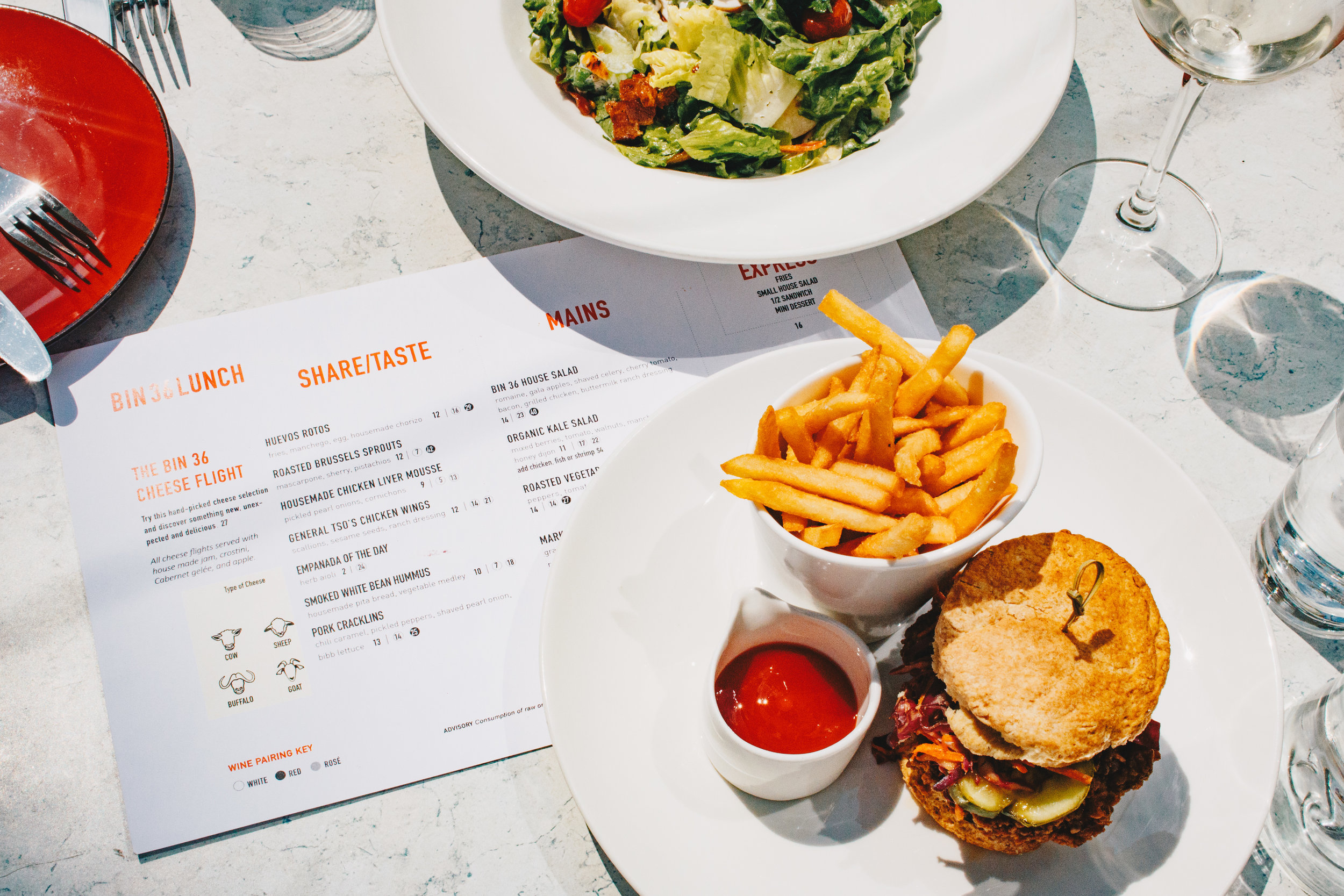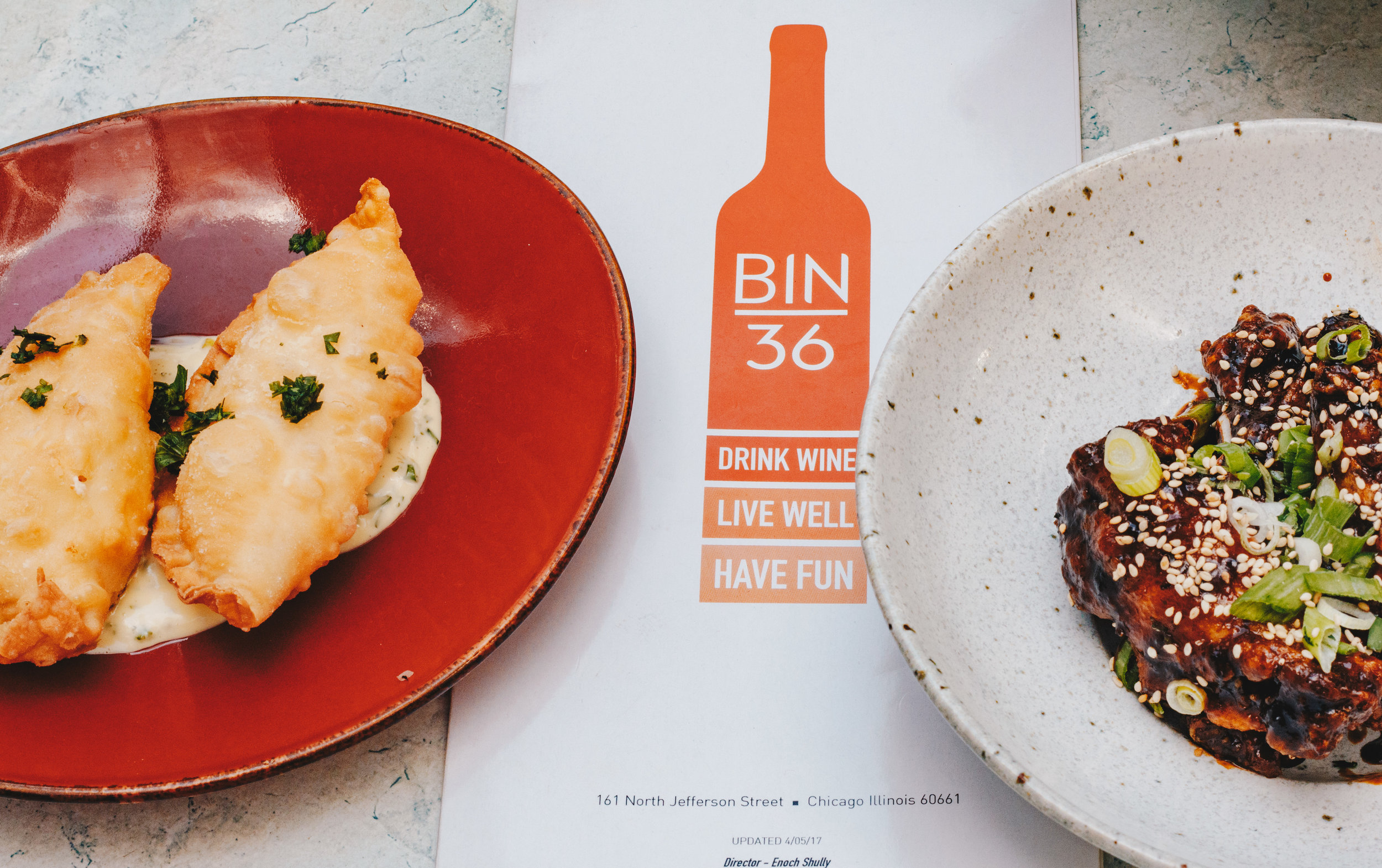This article was originally published on the Chicago Chic.
For some people, it takes them years to figure out what they want to do for a career. But for Angelina Bastidas it only took spending time with her grandma in the kitchen and watching the Food Network to ignite her fire. At the young at of 18, she enrolled at Le Cordon Bleu and from there she has become the youngest ever contestant on the popular television cooking competition, Top Chef. Angelina is taking names and orders, all while breaking every stereotype in the culinary world: Young, Female, and Latino. Her next stop, creating a diverse menu of flavors here in Chicago at the new American restaurant and wine bar, BIN 36.
What did you like most about growing up in Miami?
I was actually born in the Bronx, New York and moved to Miami when I was about eight years old. Miami so great it’s very diverse like Chicago, you have the whole latin flare, the beaches and tourism draw.
Who inspired your passion for cooking?
My grandma has a lot of importance in my career. She definitely helped me get my foot in the door. I remember always being in the kitchen, curious to learn what kind of stew she was making, smelling all the different aromas. I used to watch Emeril and Iron Chef when it first came out, it was something new for me when I moved to Miami. I remember watching Giada De Laurentiis and finding myself curious as to what kind of cake she was making or what Rachel Ray was doing on “30 Minute Meals”. It just made me want to learn.
What made you decide to enroll at Le Cordon Bleu?
After graduating high school I knew I wanted to be in the culinary industry. Since I wanted to have my own restaurant one day I knew it wasn’t just about food, I needed to get front of house experience as well. I went to community college and studied food and beverage hospitality but then realized school wasn’t for me.
One day I was sitting on my couch watching Steve Wilkos and a commercial came on for Le Cordon Bleu. It was like this light bulb went on in my head. I felt like it was my calling. It made me realize that I needed to focus on what I wanted to do and that was to become a chef.
As soon as I started at Le Cordon Bleu, I started my first kitchen job. I intended on being a hostess, in order to get my foot in the door, but the chef at the restaurant came up to me and said he had a spot in the kitchen making salads. It was a step forward. While culinary school was great with this job I was able to gain real hands on experience.
What is it like being in the kitchen?
It’s a stressful environment but stress is always needed in what we do. You see the fires, the cuts, and the macho man personas walk through the kitchen. In the first restaurant I worked in, I was the only female chef in the kitchen. You have to develop a tough skin, you have to hold back that tear because you know everyone is going to laugh at you and might not give you the opportunity to move to the next station. This is why I always make sure I am disciplined.
Culinary has a military background, especially with the brigade system. You have your lieutenant, the colonel and then you have everyone under you. I always looked at this as a challenge – we’re going to war. Someone is always depending on you, not only the chef but the guests at the table. If something doesn’t go out right, it’s your fault. There’s always a need for constant communication. Communication is key anywhere, really. But in the kitchen, there are a lot more pieces that need to come together.
Are there any obstacles you face being a young female in the culinary industry?
When I think about it I’m a triple minority. I’m young, female and Hispanic. This is definitely a male dominated industry but there are pros to being a female in the kitchen, we can keep the kitchen clean but we can also multi-task better than men. We can make sure food is coming out accordingly and communicate. It’s important to not be intimidated to talk to the general manager, the sommelier or the pastry chef and tell them any issues that come up.
Honestly, it’s a struggle for female chefs before reaching a high position. You have to think about the emotion and learn when to remove it. If they see you crack, that could make or break you. Especially when you’re running the kitchen. It doesn’t have to be a fine dining establishment, it can be anywhere. That’s why I always tell other women if there’s another female in the kitchen don’t be afraid to pump them up. If you mess up, you just have to move forward.
What was your experience like in the Top Chef kitchen?
Every kitchen I've been in feels like the Top Chef kitchen but the quick fire challenges really stick out for me. When you see Tom Colicchio and Padma Lakshmi and all you can think is "what is going to happen right now?" You never know what is going to be thrown at you. I made sure to move fast and absorb everything that I was learning.
I remember before meeting the 16 other chefs, I didn't know anyone but I felt ready. Being the youngest Top Chef to ever compete in the past 15 years definitely woke me up. I realized that no matter what age, ethnicity or gender you have an opportunity and I took it as best as I could. It was such a great experience and overall made me a better person and chef.
What influences your cooking style?
I'm Dominican and Columbian and everyone always asks me what's your favorite cuisine between the two. It's so hard to say because my mother is Dominican, they work with a lot of seasons, sazón, and flavors -- it's very much a punch in the face. Whereas the Columbian cuisine is very clean, low in salt, organic and fresh. That's how my palate began to advance and move forward.
Can you talk a little about what you’ve learned about food scene here in Chicago?
Chicago is a great culinary city. I think it's great to have healthy competition. Chicago isn't as cut throat as Miami because Miami's culinary scene is still up and coming. Everyone here is a little more established, they want to work together and help each other out. I've been able to observe and learn from of the top chefs in the city.
How has the city contributed to your growth as a chef?
This city is a constant challenge for me. I still make sure to bring that Latin flare into my menus. I love creating dishes where you smell the dish, you hear that crunch, you taste that acidity. All these different points in your palate where it all makes sense and not just because it looks nice. I tend to focus on being ingredient driven and respecting the food itself. Simple can work if you treat each ingredient as a guest, see how many ways you can turn a potato. Can you pickle it, dehydrate it, should you puree it?
I'm very global when it comes to the menu here at BIN 36. We have everything from General Tso's Chicken Wings where you have the sweet Asian, spicy zing. One the European side, the Grilled Spanish Octopus with chorizo, corn vinaigrette, charred peaches, and fingerling potatoes cooked in duck fat. Being able to tell a story with your food says a lot, it says that you put in the time on that dish and that's what I'm doing here at BIN 36.
A few of your favorite places in Chicago?
I spend so much time in the kitchen, I really haven't been able to explore much yet. But I would have to say a few of my favorite places to eat are The Purple Pig or The Publican. These two are a must. As far as relaxing, when I have time off I like to spend time at the "lake beach" as I like to call it. Millennium Park is also great, I like to grab coffee and just walk around.
What is one quote you live by?
This is something I tell my kitchen, whether it's lunch or dinner:
"You're always as good as your last plate."





